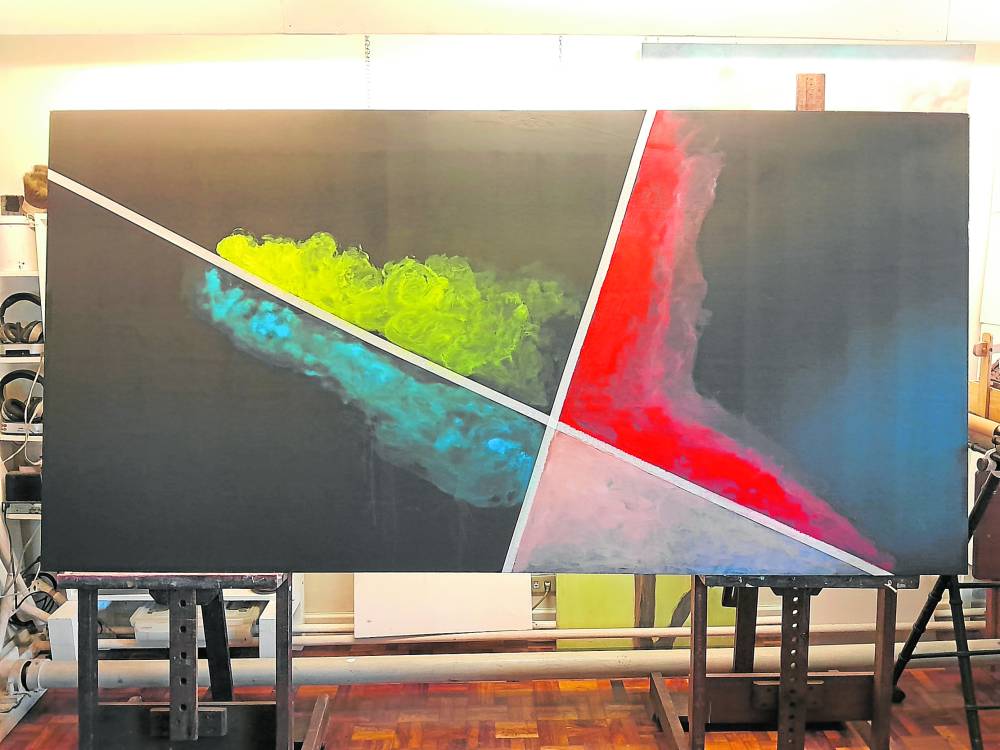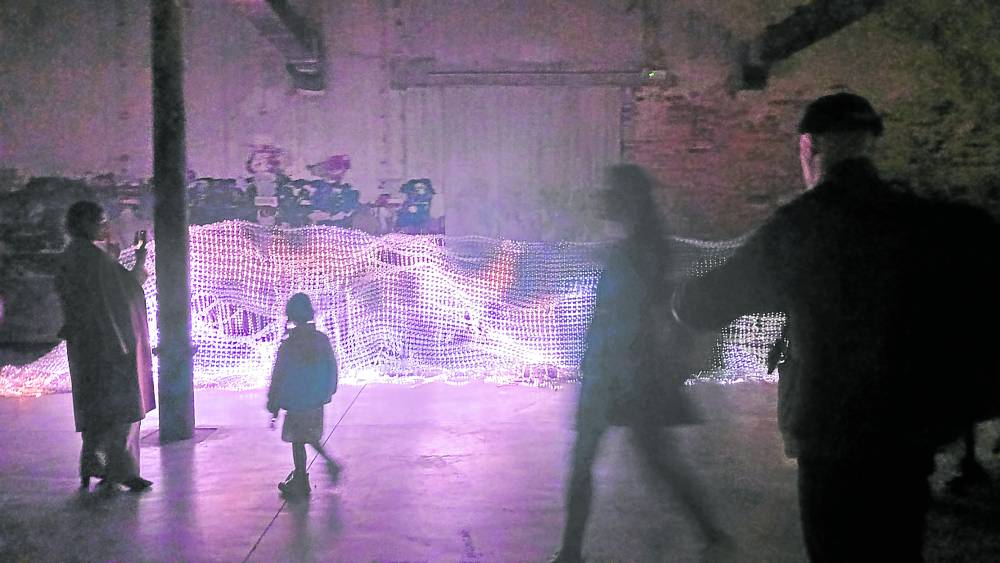Ambassador Virgilio Reyes makes his life’s work apparent in the cultural mementos on display in his bed-and-breakfast house in Taal, Batangas.
In a career that spanned nearly four decades, he had collected objects from his various postings in South Africa, Mexico, Burma (Myanmar), New York and, most recently, Italy. These not only have visual appeal but also tell a story.
In his B&B in Taal, these treasured possessions form a cultural collage.
After retirement about two years ago, Reyes decided to settle down back home, pursue cultural endeavors and look for a place to store his collection.
On a trip to the heritage town of Taal, he discovered Casa Arsinas, a 150-year-old three-bedroom house. Reyes turned it into an inn and a reservation-only dining place. (READ: Ambassador Virgilio Reyes’ list of Taal must-sees)
Although the townsfolk still refer to the place as Casa Arsinas, Reyes renamed it as Ambasciatore, the Italian word for ambassador.
Collage of Decor
The rooms display Reyes’ souvenirs grouped according to themes.
In the dining room, the walls are lined with Filipino lithographs and woven reed hats from Africa, a peasant hat from Vietnam, golden parasols from Buddhist temples and oriental umbrellas.
Over a comforting Ambassador’s Tea, concocted tea, turmeric and local citrus, by “liquid chef” Ervin Kalel Demetrio, we admired the carvings of temple bearers from Burma and cabinets filled with teapots and water jugs.
Around the open stairwell, African art, Burmese wood carving, a wooden chair from South Africa, plumes from African tribal chiefs and an antelope’s head from a safari depict cultural primitivism.
Reyes’ office echoes memories of a civilized world. A photograph in Johannesburg resembles a row of ancestral homes in Quiapo. An elongated statue of a doctor, carved in Senegal, stares at his chair.
There are framed mementoes of Reyes and literary figure Alfred Yuson’s encounter with African poets in 2005 and clippings of Mama Sita in a Filipino food festival in South Africa.
Then there are salvages such as a carved door from Rangoon, temple finials.
As homage to Taal, the sculpture of Felipe Agoncillo, the country’s first foreign minister and a Taaleño, is prominently displayed to welcome the guests. Incidentally, Reyes received the Felipe Agoncillo Award in 1995 for outstanding diplomatic service.
A bust of dictator Federico Mussolini is a reminder of Reyes’ last posting in Italy.
He likens his bedroom to Aladdin’s treasure trove. Vestiges of the Burmese bible, Buddhas in alabaster and beaten metal lend reverence to his room.
In his cabinet of curiosities, a reproduction of the oldest skull from South Africa was a gift from the director of the anthropological museum. In exchange, Reyes gave a repro of a skull of the Tabon caveman, said to be the earliest human remains in the Philippines.
Along the walls, Reyes’ collection of Indonesian and African masks, pre-Columbian sculptures and busts of Frida Kahlo and Lenin, and Burmese puppets seem to blend in a conversation.
The main guest room has Burmese beds and an antique bed from Reyes’ grandfather that coexists with a painting of jazz musicians, purchased in a mercantino, the Italian garage sale.
Spirits and food
During the rainy season, Ambasciatore focuses on its cuisine. The staffers on call consist of Aida Lagrimas Jimenez, the chef who came with Reyes’ postings, and Demetrio.
For the bed and breakfast, he invited Cezar de Leon to come up with a Batangueño breakfast and Kapampangan cuisine.
De Leon passed away a month ago. The recipes were his legacy. The adobong Batangas, with its combination of tartness and spice, has potatoes as a counterpoint.
The kalderatang baka is simmered for hours until the meat is softened and absorbs the sweet and salty marinade. The pata or pork skin has been cleaned thoroughly to remove the pungent taste. It’s boiled several times and cooked in charcoal for a fresh and crunchy texture.
Bringhe, the chef’s Pinoy version of the Spanish paella, is cooked the traditional way with sticky rice, coconut milk and fresh turmeric. He mixes it with liver, gizzard, Hungarian sausage, green peas and raisins for sweetness.
Jimenez was trained at Alba’s Spanish restaurant before she cooked for Reyes in his postings in South Africa and Rome.
While in Italy, she learned to make pasta at Casa Artusi, the famous school in the culinary heartland of Forlimpopoli. She can also make quiche, French apple pie and a host of Italian dishes.
Demeterio attracts the younger market. More than a bartender or a mixologist, he describes his job as a liquid chef. Unlike a bartender who formulates beverages in a bar, the liquid chef collaborates with sources for the ingredients and experiments in different concocting techniques.
“I distill, ferment, brew and cook,” he says.
Demetrio is touted as one of the top 10 mixologists in the country and is a brand ambassador for Distelleria Limtuaco. He worked for popular restaurants such as Sumo Sam, Cyma, and Green Pastures, which opened his eyes to cooking with organic local ingredients.
Plans are afoot to create drinks such as the local lambanog, tapuy and basi presented in a worldly cosmopolitan style.
Lambanog, the local vodka, can be infused with fruits.
He once concocted a cocktail using Batangas’ specialties—dalandan and honey with siling labuyo and lambanog.
Ambasciatore’s signature welcome drink is a sweet and zesty orange liquor with Manille Calamansi liquor and fresh orange slices.
Reyes says that the Ambasciatore is his modest way of reminding Filipinos of our rich culture.
“Taal has been a dormant princess,” he says. “Yet it has a rich history. I’d like to marry the 19th century Taal with the 21st century Philippines, realizing how valuable our heritage is. In Europe, there are laws that prevent you from changing the landscape. Many heritage advocates in the Philippines have found ways to preserve Pila, Sariaya and Taal on their own.”
He adds: “This belongs to the Philippines and we must conserve the heritage for posterity. This venture is my small way. If there are many of us who do this, we can help in nation-building.”
A quote from a politician that people can’t eat culture and heritage comes to mind. Reyes disagrees: Even if we take care of the needs of the poor, it is necessary to take care of who we are.”
Bed and breakfast, and dining are by reservations. E-mail [email protected], [email protected]; tel. 0935-4597779, 0939-5974960.









































